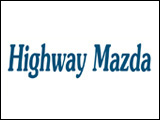H1N1 Vaccine Supply
Manitoba Health advises the province received 172,000 doses of vaccine with adjuvant this week. This vaccine has been distributed to the regional health authorities (RHAs).
Manitoba has been advised that it will receive 204,000 doses of vaccine with adjuvant next week. To date, Manitoba had received and distributed a total of 551,100 doses of vaccine. At the end of the day Tuesday, nearly 323,000 shots had been given by regional health authorities.
H1N1 Flu Shots
All Manitobans who need, want and would benefit from the H1N1 flu shot are encouraged to visit a regional flu shot clinic as soon as is practical to get the maximum benefit from the vaccine. RHAs are adapting their clinics based on the supply and demand for vaccine, reaching the priority groups and other geographic and population realities of each RHA. Manitobans are encouraged to contact their RHA for up-to-date flu clinic information.
As of Nov. 21 in Manitoba, there have been eight serious adverse events following immunization, which have been reported to the Public Health Agency of Canada. Five of the serious adverse events have been classified as anaphylaxis, a serious and immediate allergic reaction to the vaccine. A total of 204 adverse events have been reported including a range of reactions at the injection site, coughing, headache, fatigue, feeling unwell or fainting.
Investigation continues into the deaths of two people within seven days of receiving the H1N1 flu shot. Both individuals were adults between the ages of 18 and 64. Early indications are the immunizations were not likely the cause of death in either case.
H1N1 Flu
During the week of Nov. 16 to 23, Manitoba Health reported 703 additional lab-confirmed cases of H1N1. Since the second wave of H1N1 flu began on Oct. 6, Manitoba has now reported a total of 1,246 lab-confirmed cases. Of all lab-confirmed cases, 50 per cent (617) were children under the age of 18. Another 49 per cent (610) were adults aged 18 to 64. Fifty-two per cent were women and 48 per cent were men. Lab-confirmed cases do not reflect the actual number of people with the illness, nor do the numbers indicate the seriousness of disease any individual may experience.
In the week of Nov. 16 to 23, there was one new intensive care unit admission (ICU). As of Nov. 23, there were six people in ICU, five with lab-confirmed cases of H1N1. As of Nov. 23, a total of 43 people with lab-confirmed cases of H1N1 had been hospitalized. Information about these cases continues to be gathered through public health investigation and statistics may change.
Additional measures to help prevent flu infections:
• Cover your cough by coughing into your elbow or sleeve or use a tissue to cover your nose and mouth when coughing or sneezing. Place the tissue in the garbage.
• Wash your hands often with soap and water, especially after coughing or sneezing. Hand sanitizers may also be effective.
• Reduce the spread of germs. Limit touching your eyes, nose or mouth.
• Maintain your health by making healthy food choices, being physically active and getting enough sleep.
Manitobans are reminded to watch for signs of severe illness. If you or a family member has any of the following symptoms, go directly to an emergency room, nursing station or health-care provider or call 911:
• shortness of breath or difficulty breathing,
• severe or worsening symptoms,
• dehydration,
• drowsiness or confusion,
• fever in an infant under three months old, or
• any signs of serious illness in a child under five years of age.
Manitobans are encouraged to contact their nearest health-care provider or visit the nearest health-care centre if they have flu symptoms and risks for severe illness or are concerned they may need care, especially if symptoms are severe or worsening. Early treatment (within 24 to 48 hours) may be very important.
More information on H1N1 flu is available at www.manitoba.ca/flu or Health Links–Info Santé at 788-8200 or 1-888-315-9257 (toll-free).



